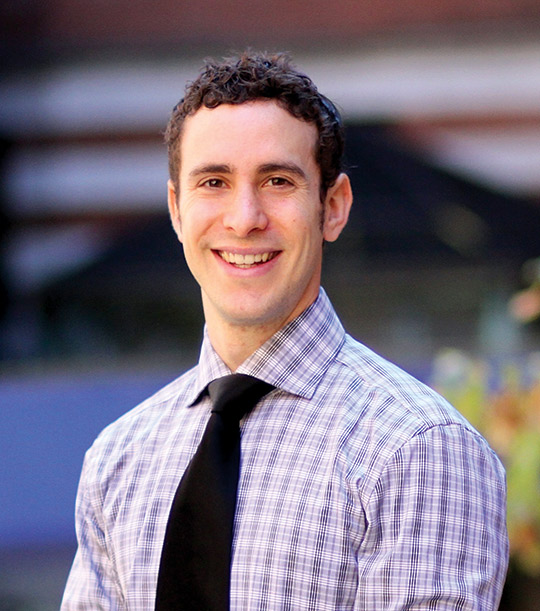Barry Goldenberg went to school in Chesterfield, Missouri, a suburban St. Louis district with an African American enrollment carved from a federally-approved desegregation agreement. He was an unlikely candidate, he acknowledges, to someday introduce Harlem high school students to the heritage of their storied neighborhood.
Furthermore, the seeds of Youth Historians in Harlem, the project Goldenberg founded and led at TC, were planted in Los Angeles, where a passionate UCLA professor named Ernest Morrell opened his eyes to racial inequities in urban public schools.

SPOTLIGHTING HARLEM’S HISTORY Barry Goldenberg (Ph.D. ’19) has empowered Harlem high school students to learn about the history of their storied neighborhood. (Photo Credit: barrygoldenberg.com)
Goldenberg eventually reunited with Morrell at Teachers College, where Morrell (today at the University of Notre Dame) served for several years as Macy Professor of English and Director of the College’s Institute for Urban and Minority Education (IUME).
As an intern at IUME, Goldenberg teamed with his advisor, Ansley T. Erickson (now Associate Professor of History & Education) and Morrell to launch the Youth Historians project. The effort, which he calls “an experiment that kind of blossomed into something organic and unique,” was a hit with its first cohort of students at Frederick Douglass Academy II.
“By and large, they didn’t recognize the rich history of their community,” Goldenberg says – primarily because the U.S. history curriculum of the New York City public schools paid little attention it.
Graduate Gallery 2019
Meet some more of the amazing students who earned degrees from Teachers College this year.
“Over time,” Goldenberg says, the students “began to appreciate that Harlem is really an amazing place. They realized that these were their stories and this was their history. They embraced it and were empowered by it.”
Goldenberg led the project from 2012 to 2016 before moving into an advisory role in order to focus his dissertation – a study of Harlem Prep, an independent community school that from 1967 to 1974 accepted the challenge of educating students “pushed out” of traditional high schools. The dissertation takes a deep dive into the administrators, teachers and pedagogy that created a pathway to college for 750 students who had few opportunities elsewhere.
In 2018, Goldenberg returned to Southern California where he is working as an adjunct history instructor at a suburban L.A. community college while pursuing a permanent college or university faculty position. But the Youth Historians project is still going strong – a success that Goldenberg credits to Erickson.
“She has taken it on entirely, and without her time and commitment, it wouldn’t exist today,” he says. And that, he adds, would be a loss because the gentrification of Harlem has made the project more important than ever.
“Understanding what the community has been gives young people a greater understanding of what is happening in the community now,” says Goldenberg. “It helps them understand why their elders became so upset when the Whole Foods popped up on 125th Street.”